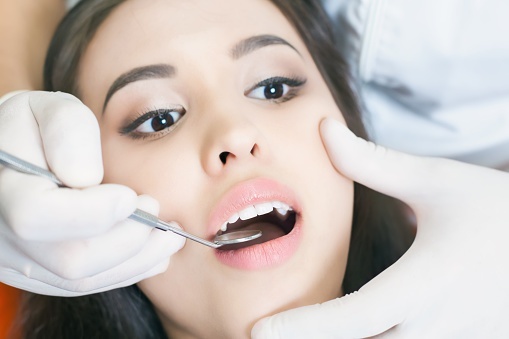By Kate Ranta on Apr 18, 2016 @ 02:53 PM
Taking care of your oral health should be a priority even when you are young. Although many young adults feel they will not need to worry about their teeth for years, it’s beneficial to visit the dentist every six months from childhood on. Consider the following reasons it is important to maintain good oral health by having dental insurance and visiting the dentist on a regular basis.
- Catch problems early. At a dental visit, the dentist may find an issue before you have felt any pain to indicate a problem existed. By identifying the issue early, treatment will probably be less invasive, less painful and less expensive. Catching a problem early prevents it from developing into a big issue. This will save you from discomfort and a large financial expense.
- Overall health. Studies have shown that oral health impacts your entire body. In many cases, a dentist can help identify an issue that affects another area of your body. Sleep-breathing issues, such as snoring and sleep apnea, can be identified by a dentist. Cardiovascular disease may be caused by a bacterial infection in your mouth. Oral cancer can be identified at a dental visit. Regular trips to the dentist can benefit your overall health.
- Dental problems occur unexpectedly. You may be young and healthy but that doesn't mean you won't encounter dental problems. An infection in your mouth can happen at any age and cause serious issues. People commonly lose a tooth unexpectedly when playing a sport, like basketball, with friends. Having dental insurance prevents you from having to pay a large dental bill when an unexpected issue arises.
Tips for “cheap” dental insurance
Seeking dental insurance will help ensure that you receive the dental care you need. Many millennials find, however, they do not have a lot of extra income to pay for extra expenses. They are still paying student loans. Some have jobs that aren't high paying yet. How can millennials pick cheap dental insurance? Consider the following tips:
- Look for group coverage. Often a group coverage plan will be less expensive than purchasing individual insurance. Look into your employer-sponsored plan or check the federal marketplace for a group policy that meets your needs.
- Don't rule out an individual plan. If a group plan is not available for your situation, don't rule out an individual plan. Keep in mind that these plans often have waiting periods for significant procedures. This means you can't sign up right before you need a dental implant. You will have to wait six months or even a year before you can use benefits for major procedures. When evaluating individual policies, don't hesitate to comparison shop. Look at both the price quotes and the policy details to make sure you know what is covered.
- Select an in-network dentist. The dental insurance policy will pay a higher percentage of the costs if you go to an in-network dentist. If you already have a favorite dentist, verify they accept the insurance plan before you sign up. If you don't have a regular dentist, select one from the list of dentists provided by the insurance plan.
- Understand the policy. If you know you will need serious dental work, you may be better off with a higher priced plan that covers a higher percentage of the dental bill. On the other hand, if you currently don't require much dental work, you may benefit from a policy with a lower percent benefit. The cost of the insurance will be lower. Understand the details of the policy and make sure they line up with your specific situation.
Getting dental insurance should be a priority. It is not as costly as health insurance yet is still important for your overall health. Implementing the above tips will help you find a "cheap" dental policy that meets your needs.





comments